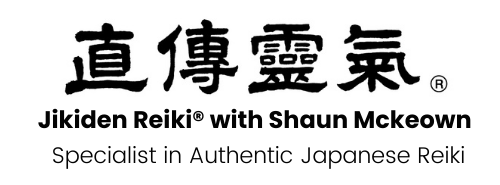Using Reiki for Relaxation
A common reason many people try a Reiki treatment in the first place is to help them relax. In my experience, in addition to the many other ways Reiki can help people, increased relaxation is the most immediate effect of a course of Reiki treatments. Indeed, an improvement in relaxation is commonly experienced from the first Reiki treatment, usually experienced during the actual Reiki treatment itself. Then in subsequent treatments, as a person becomes more comfortable with their treatments, as they feel more at ease and gain a greater trust in both Reiki and their practitioner the levels of relaxation progressively deepen.
The immediate levels of relaxation experienced during the treatment itself tend to be of a deeper nature when compared to alternative relaxation techniques. This is due to the nature/deeper effect of Reiki energy on a person which is to a much greater level than would be achievable via other relaxation methods. Another benefit of Reiki is that the recipient just has to lie there and receive the treatment rather than learn a skill or practice a technique to receive deep benefits, which is great if your brain is fried after a long day at work! Commonly Reiki holds a person’s consciousness somewhere between deep relaxation and sleep, so they are aware but deeply relaxed. It is also quite common for people to fall asleep during a Reiki treatment.
By default modern lifestyles promote people to spend an exaggerated proportion of their day in a heightened state of alertness, in the active part of the autonomic nervous system - sympathetic nervous system dominant - or, in other words, stuck in turbo. The immediate physical effect of a Reiki treatment on a person’s body is that Reiki will commonly induce a state of balancing the body and mind promoting a parasympathetic dominance - a shift to the calmer branch of the autonomic nervous systems - as an immediate relaxation response which restores the natural baseline level of alertness which is congruent with optimal health and well-being. From a physiological view, this effect is the same for other relaxation methods however the depth of relaxation tends to be deeper with Reiki. I will commonly observe this as a shift in breathing, or a release in shoulder or neck tension during treatment.
Beyond the immediate relaxation effect induced by a Reiki treatment, I find that there is an extended relaxation response experienced well after the treatment has ended. This might be just a few hours or, more often, a couple of days after the first treatment. However, during a course of Reiki treatments, I find that this extended relaxation response deepens as well as progressively extends. This is commonly communicated to me by my clients as an increased level of calmness that stays with them in between their Reiki treatments.
So not only does Reiki appear to encourage relaxation at the event of the Reiki treatment itself it also seems to, as a chronic, or lasting effect, to have a sort of 'resetting' of an individual’s baseline level of alertness in the direction of its natural optimal parasympathetic dominance- when in a rested, or going about your day state. Just viewed from a physiological view alone this would have significant implications to the body in terms of health and well-being. For example on a chemical level, such a chronic relaxation influence/migration towards parasympathetic dominance would reduce elevations in stress hormones, such as cortisol, which would be advantageous from a health and well-being perspective. Such an effect has the potential to positively influence issues such as sleep quality, reducing stress, and reducing immune system suppression, among other benefits. It would be a fair assumption to suggest the merits of Reiki would be even more helpful to someone currently managing a health condition where relaxation would be beneficial or a condition that would be aggravated by stress.
The extended relaxation effect of Reiki progressively strengthens with subsequent Reiki treatments experienced, especially when they are conducted reasonably close together - acting if you like as a layering effect of deepening the level of calmness within a person. This tends to become a permanent benefit with many as they progress with their Reiki treatments and even more so with those who take Reiki training; by just embarking on a journey of healing, acceptance and personal growth, as is the case with a life filled with Reiki, that person tends to progressively migrate to a baseline place of greater peace, compassion, and acceptance, towards themselves as well as others. You could say this in itself produces a much greater constant state of relaxation.
Experiences with regard to relaxation are generally consistent; it is more the duration in time/ number of treatments required to achieve a strong relaxation effect that differs, with various contributing factors influencing the outcome or degree of relaxation experienced and the volume of Reiki required to experience the effect. Some treatment sessions might sometimes be less relaxing than others, dependent on what needs to be cleared at the time for the person however the trend is usually toward increased relaxation.
For a start where a person is relatively 'at' emotionally when coming for their first Reiki treatment plays a part. Some people are mentally uncomfortable physically lying still (i.e. have a strong compulsion to be 'doing something' from a point of conditioned guilt). People can also have differing degrees of racing of the mind and differing ability to calm their minds down at the point they start their treatment plan. Indeed for some being still in mind can be an uncomfortable experience to start with, as can being 'present' with themselves in the here and now be daunting for others, as it can draw their attention to a life experience that they are not happy with, or draw attention to what actions they need to do to be happier in their life. This can be frightening. (For some people, being busy mentally and physically can be a distraction strategy to avoid looking in the mirror as such). The other main factors I would say are the degree a person's guard is up and their ability, or trust, to let their barriers down and accept the healing offered by the treatment.
There is not a direct correlation between those in a good place emotionally commencing a course of Reiki treatments, and experiencing a superior relaxation response. In some, the effect can be dramatic and quick even with strong emotional challenges. Commonly someone who is very busy in mind and very analytical in thinking might find they hold back a bit at the first treatment and progressively let go and relax more as they progress through their course of Reiki treatments. So to conclude, yes it is very effective in helping people to relax. Bear in mind there is much more that can be gained from Reiki. To find out about how Reiki treatments could help you click on the link below. Find out more about Jikiden Reiki treatments or Jikiden Reiki Training Courses
I am mainly known nowadays for my work with Reiki, as a specialist in authentic Japanese Reiki. I am an experienced, Reiki teacher and practitioner with a proven track record of results. I offer Jikiden Reiki training courses, promoting authentic Japanese Reiki teachings. I am based in Sutton Coldfield, Birmingham, in the UK. I have a background in coaching and training in the areas of exercise coaching, holistic lifestyle, fitness, and performance coaching. I also have a BSc.(Hons) degree in Sport and Exercise Science, for more information visit: www.shaunmckeown.com
The information contained above is provided for information purposes only. The contents of this article are not intended to amount to advice and you should not rely on any of the contents of this article. Professional advice should be obtained before taking or refraining from taking any action as a result of the contents of this article. Shaun Mckeown, disclaims all liability and responsibility arising from any reliance placed on any of the contents of this article.

